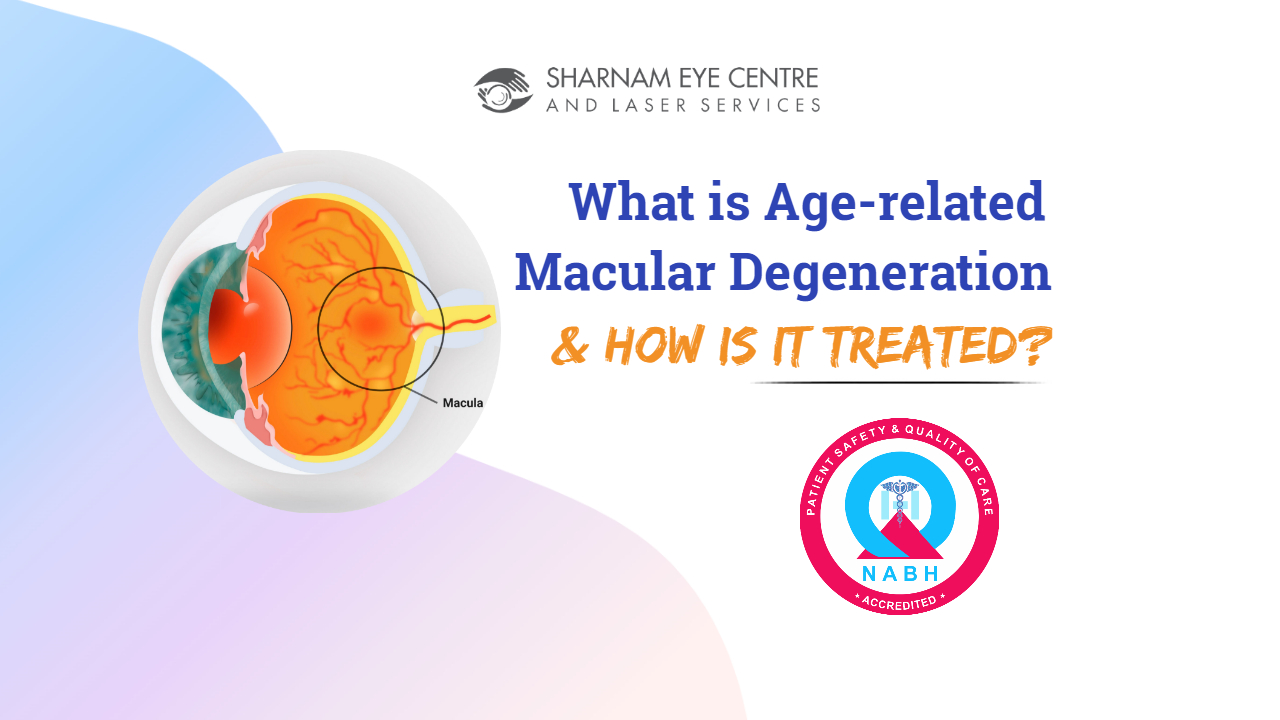Age-related macular degeneration (AMD) is a condition that affects the central part of the retina, called the macula. It is a leading cause of vision loss among people over the age of 50, and it can result in significant visual impairment or blindness.
There are two types of AMD: dry and wet. Dry AMD is the most common type, and it is characterized by the gradual breakdown of the macula over time. Wet AMD is less common but more severe, and it is caused by the growth of abnormal blood vessels beneath the retina.
Age related Macular Degeneration Treatment:
Treatment for AMD depends on the type and severity of the condition. For dry AMD, there is no cure, but there are lifestyle changes that can slow the progression of the disease, such as eating a healthy diet, quitting smoking, and protecting the eyes from sunlight. Some supplements, such as vitamins C, E, and zinc, may also be helpful.
For wet AMD, there are several treatments available, including injections of drugs that block the growth of abnormal blood vessels or laser therapy to destroy them. These treatments can help slow or stop the progression of the disease and preserve vision, but they cannot restore vision that has already been lost. It’s important to seek prompt treatment if you experience symptoms of wet AMD, such as a sudden or rapid loss of vision, distorted vision, or the appearance of wavy lines in your field of vision.
It’s important to note that early detection is key in the treatment of AMD. Regular eye exams are crucial for people over the age of 50, especially those with a family history of the disease or other risk factors. If you have concerns about your vision or risk for AMD, you should speak with a retina specialist for guidance.
Age-Related Macular Degeneration (AMD) FAQs:
Here are some frequently asked questions about age-related macular degeneration (AMD):
Q: What are the symptoms of AMD?
A: The symptoms of AMD may include gradual loss of central vision, blurred or distorted vision, difficulty reading or recognizing faces, difficulty seeing in low light and decreased brightness or intensity of colors. Some people with AMD may also experience a blind spot or a dark area in the center of their vision.
Q: Can vision lost from AMD be restored?
A: Unfortunately, vision lost from AMD cannot be fully restored. However, treatment can help to slow the progression of the disease and prevent further vision loss, allowing many people with AMD to maintain some level of vision and continue their daily activities.
Q: What are the risk factors for age-related macular degeneration?
A: The primary risk factors for AMD are age, genetics, and smoking. Other factors that may increase the risk of AMD include a family history of the disease, high blood pressure, obesity, and a diet high in saturated fats.
Q: How often should I get an eye exam if I have age-related macular degeneration?
A: People with AMD should have a comprehensive eye exam at least once a year, or as recommended by their retina specialist, to monitor the progression of the disease and adjust treatment as needed.
Q: Can age-related macular degeneration cause total blindness?
A: AMD doesn’t cause complete blindness, you may have difficulties seeing faces, reading, driving, or doing close-up works like cooking or fixing things around the house if you lose your central vision.
Disclaimer: This content is for informational purposes only and should not replace professional medical advice, diagnosis, or treatment.



